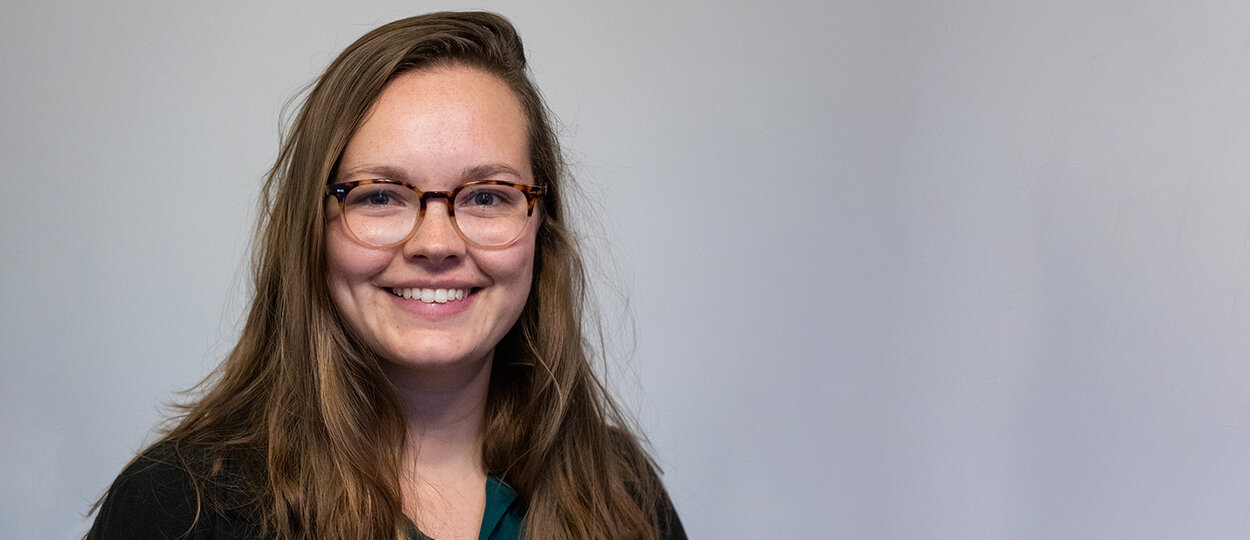Eliza McColl is currently pursuing her PhD degree in Pharmaceutical Sciences supervised by Professor Micheline Piquette-Miller. Recently, Eliza’s research has been recognized by two international scientific organizations and she has been invited to give oral presentations at conferences hosted by the American Society of Pharmacology & Therapeutics/Experimental Biology and the American Society for Reproductive Immunology.
What is your academic background and why is this area of research important?
My current research focuses on how viral infections that occur during pregnancy influence the placenta, which supports fetal development, and the fetal brain. This is important because there is evidence that infection during pregnancy increases the incidence of neurodevelopmental disorders such as autism and schizophrenia in offspring, but it is unknown how this happens. I am looking for a potential explanation for this phenomenon, and we think it may involve, at least partially, the placenta.
What led you to your current Supervisor’s research group?
I was initially intrigued by Dr. Piquette-Miller’s research into how environmental factors during pregnancy can influence placental drug transport and ultimately fetal drug exposure. I was interested in both women’s health and pharmaceutical sciences, and her research allowed me to pursue both of those interests.
What are some of the challenges you had to overcome in your research?
The first challenge that comes to mind is learning to be comfortable with failure and incremental success. I think a lot of people (myself included) come into graduate school thinking that success and productivity in research is linear. The reality is that the day-to-day of research involves a lot of planning, failing, and troubleshooting, which I wasn’t prepared for. I’ve had to readjust my definition of successful research to include smaller, incremental successes born of hard work, determination, and a lot of setbacks.
The second challenge that has impacted research around the world is COVID-19. Most of us lost access to our labs for a minimum of three months. Even when we were allowed to start doing lab work again, there have been capacity limits, restrictions on animal studies, and backorders on reagents and labware to contend with. It’s made it really difficult to conduct our research as usual, and a lot of us have had to be creative and either pivot or come up with new projects to continue to make progress over the past year and a half.
How do you see your current research playing a role in your career?
I anticipate that my current research will play a significant role as I plan to pursue a career in academic research. I would eventually like to become a professor with my own research lab that researches how infection and inflammation impact the placenta. The research that I conduct right now has given me a lot of the background knowledge and techniques that I will need to use when establishing my own research program. I’ve had the opportunity to work with both human and rat placentas and conduct analyses in vitro, in vivo, and ex vivo, which has exposed me to multiple different aspects of placental research. So, even if I don’t end up researching the exact that I do now, I’ve gained transferable skills that I could apply to a new area of placental research.
What do you like to do when you are not working on research?
I’m very into birding and wildlife photography. Toronto has surprisingly good birding for an urban centre, so I enjoy traveling to different parks and green spaces throughout the city to see which birds I can photograph (you can see my work on Instagram @elizas.lens).
I’m also passionate about social justice and equity, diversity, and inclusion (EDI) advocacy, so I helped to co-found Pharm Sci for EDI (PSEDI), a student-run advocacy group in the Leslie Dan Faculty of Pharmacy, and I help facilitate the U of T Women in STEAM Book Club.
More News
Image

Jillian Kohler recognized for leadership in anti-corruption work
Canadian Integrity Award honours commitment to transparency, accountability and integrity
Read More
Image

New symptom reporting tool improves quality of life for children with cancer
Researchers at Leslie Dan Faculty of Pharmacy and The Hospital for Sick Children develop standardized tool to report bothersome symptoms.
Read More
Image

Catalyzing Ontario’s bioeconomy through academic research and innovation
Professor and entrepreneur Christine Allen speaks at the 2024 Ontario Economic Summit.
Read More
